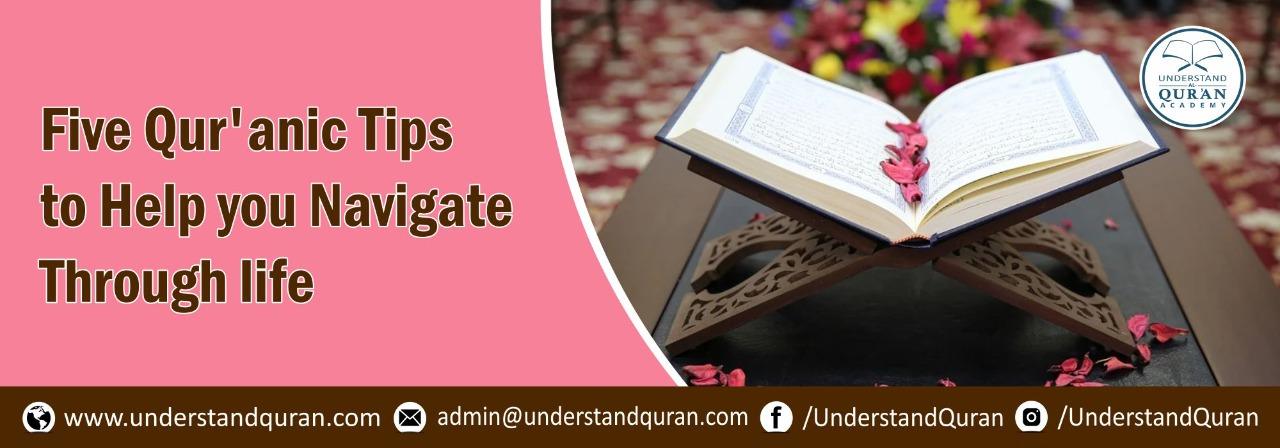Feeling unmotivated? 4 ways from the Qur’an and Sunnah to Battle Laziness!

Let’s be honest with ourselves: how eager are you really to pray? How many times can’t you get yourself to read the Qur’an? Or to even do Dhikr (remembrance of Allah) daily, which hardly takes a physical effort at all?
The word lazy has many different layers; it is an actual (spiritual) disease – even not often recognised as such- and therefore one of the most common, seemingly effective tricks of shaitan. So, it’s time to battle back!
Allah, the Most High, promises us: And We will surely test you with something of fear and hunger and a loss of wealth and lives and fruits, but give good tidings to the patient. [Qur’an, 2:155]
Thamaraat (ثَمَرَات), not just refers to ‘fruits’, but also to the concept of productivity. You might work hard for something, but won’t be able to see the ‘fruits’, the outcome or even appreciation you hoped.
As opposed to losing or not ‘benefiting’ from something you worked hard for, Allah, the Most High, mentions kasal (laziness) twice in the Qur’an, of which: ”Verily, the hypocrites seek to deceive Allah, but it is He Who deceives them. And when they stand up for the prayer, they stand with laziness and to be seen of men, and they do not remember Allah but little. [Qur’an, 4:142]
Let’s discover different types of laziness, put yourself to the test and learn four ways to battle laziness from the Qur’an and Sunnah!
4 ways from the Qur’an and Sunnah to battle laziness
Being lazy refers to a lack of energy and enthusiasm of doing something that you should not lack energy/enthusiasm for, according Imam al-Ragheb. Laziness can be that of a group, or community at large, as families or as in individual.
1. Reignite your desire to seek and convey knowledge.
Both the community and individual can suffer from being ‘lazy’ in the importance we attach to seeking and conveying knowledge. From pioneers in science, engineering, mathematics etc it seems gaining and conveying knowledge has taken a backseat, making space for (mis)use of the TV, social media and so forth.
Action point: Use these supplications from the Qur’an and of the Prophet ﷺ regularly and teach it to children and others as an ongoing charity and way to battle educational laziness for our generations to come!
رَّبِّ زِدۡنِي عِلۡمًا – Rabbi Zidni Ilma’ (O my Lord! increase me in knowledge) Allah, the Most High, did not order the Messenger ﷺ with request for increase in anything except for an increase in knowledge. [Fat’h-al-Bari: 1/141]
The Prophet ﷺ used to say in the morning:
اَللّٰهُمَّ إِنِّيْ أَسْأَلُكَ عِلْمًا نَّافِعًا، وَرِزْقًا طَيِّبًا، وَعَمَلًا مُّتَقَبَّلًا
[Allaahumma innee as’aluka ‘ilman naafia’, wa rizqan tayyibaa, wa ‘amalan mutaqabbalaa]
(O Allah! Indeed, I ask You for beneficial knowledge, and a good (Halal) provision, and actions which are accepted). [At-Tabarani]
The Prophet ﷺ said:
اَللّٰهُمَّ انْفَعْنِيْ بِمَا عَلَّمْتَنِيْ وَعَلِّمْنِيْ مَا يَنْفَعُنِيْ وَارْزُقْنِيْ عِلْمًا تَنْفَعُنِيْ بِهِ
[Allahumm’an fa’nee bi-maa ‘allam-ta-nee wa ‘allim-nee maa yanfa’u-nee war zuq-nee ‘ilman tanfa’u-nee bihee]
(O Allah! Benefit me with what You have taught me, and teach me that which will benefit me, and grant me knowledge which will benefit me.) [Al-Hakim, Bayhaqi, At-Tabarani]
2. See the reality of Rizq (provisions) Financially we can also be lazy, as a community or individual. From being active in trade and entrepreneurship, many don’t aspire to engage or excel in trade. The Prophet ﷺ said: Engage in trade, for nine tenths of sustenance is found therein [Takhrijul Ihya of ‘Allamah ‘Iraqi, Sharhul Ihya] And: “By Him in Whose Hand my life is, it is better for anyone of you to take a rope and cut the wood (from the forest) and carry it over his back and sell it (as a means of earning his living) rather than to ask a person for something and that person may give him or not. [Al-Bukhari] Another level of financial laziness is by refraining from giving in charity, where you’re able to do so.
Action point: Use this supplication for triple benefit, both for knowledge, Rizq and accepted deeds!
اَللّٰهُمَّ إِنِّيْ أَسْأَلُكَ عِلْمًا نَّافِعًا، وَرِزْقًا طَيِّبًا، وَعَمَلًا مُّتَقَبَّلًا
[Allaahumma innee as’aluka ‘ilman naafia’, wa rizqan tayyibaa, wa ‘amalan mutaqabbalaa] (O Allah indeed I ask You for beneficial knowledge, and a good (Halal) provision, and actions which are accepted). [At-Tabarani
3. Don’t underestimate your body.
Feeling low spiritually can affect your body’s energy levels, just how being physically lazy can affect how you feel spiritually. Leaving certain religious duties can in turn make your body more lazy and weak, while in turn, remembering Allah (Dhikr) can strengthen your body!
Allah, the Most High, says about the virtues of seeking forgiveness (Istighfar):
And O my people! Ask forgiveness of your Lord and then repent to Him, He will send you (from the sky) abundant rain, and add strength to your strength, so do not turn away as Mujrimoon (criminals, disbelievers in the Oneness of Allah). [Qur’an, 11:52]
Ibn al-Qayyim said in al-Wabil al-Sayyib, when listing the benefits of Dhikr, including praying for forgiveness: Dhikr gives a person strength so that he can do with Dhikr that which he cannot do without it. I saw wonders in the strength of Shaykh al-Islam Ibn Taymiyah in walking, speech, courage, and writing. He used to write in one day what a scribe would write in a week, or more. The troops saw his amazing strength in war.
Action point: Ibn al Qayyim, continued: Use the Dhikr the Prophet ﷺ taught his daughter Fatimah and ‘Ali, may Allah be pleased with them, to recite Tasbeeh (SubhanAllah) -glorification of Allah- thirty-three times every night when they went to bed, and to recite Tahmeed (Alhamdulillah) -praises of Allah- thirty-three times, and to recite Takbeer (Allahu akbar) -magnification of Allah- thirty-four times, when she asked him for a servant and complained to him about the hardship of grinding corn, working and serving (her family). He taught her this and said: “It is better for you than a servant.” It was said: The one who persists in doing this, will find strength in his body that will make him independent of the need for a servant. [Ibn Al-Qayyim, Al Wabil al Sayyib]
4. Realize the source of laziness and its ripple effect on your life.
Laziness in ‘ibaadah (acts of worship) has an effect on other aspects of your daily life. For example, you have people who don’t pray nor recite Qur’an, nor remember Allah, the Most High, at all, those who do so quickly or little and those who give due time and attention to acts of worship. This type of laziness is beloved by the shaitan, and he will try his very best to trick you into being lazy in your religious acts.
The Prophet Muhammad ﷺ said: “Shaitan puts three knots at the back of the head of any of you if he is asleep. On every knot he reads and exhales the following words, ‘The night is long, so stay asleep.’ When one wakes up and remembers Allah, one knot is undone; and when one performs ablution, the second knot is undone, and when one prays the third knot is undone and one gets up energetic with a good heart in the morning; otherwise one gets up lazy and with a mischievous heart”. [Al-Bukhari]
Your prayer, is the source for many other good deeds, it’s a beautiful, soul-saving duty to commit to without fail, from the moment you become of age, until the moment you leave this world, five times a day (excluding the situations prayer isn’t obligatory).
The Prophet ﷺ said: The first action for which a servant of Allah will be held accountable on the Day of Resurrection will be his prayers. If they are in order, he will have prospered and succeeded. [At-Tirmidhi]. This is a clear example how laziness in prayer affects our entire life and afterlife! The fact the Prophet ﷺ sought refuge in Allah, the Most High, from laziness, shows how serious we should take this disease of our community, our families and ourselves.
Action point: Use the Prophet’s supplication with conviction:
اَللَّهُمَّ إِنِّي أَعُوذُ بِكَ مِنَ الْهَمِّ وَالْحَزَنِ وَالْعَجْزِ وَالْكَسَلِ وَالْجُبْنِ وَالْبُخْلِ وَضَلَعِ الدَّيْنِ وَغَلَبَةِ الرِّجَالِ
[Allaahumma ‘innee ‘a’oothu bika minal-hammi walhazani, wal’ajzi wal’kasali, wal’bukhli wal’jubni, wa dhala’id-dayni wa ghalabatir-rijaal.
(O Allah, I seek refuge in You from anxiety, sorrow, disability, laziness, cowardice, miserliness, the burdens of debt, and the repression of men). [Al-Bukhari]
Praying you will benefit,
Hundreds of thousands of Muslims have benefitted from our short courses in Arabic and unique methodology. So, can you!
Apply here for a FREE TRIAL now.
Khawlah b. Yahya – United Kingdom
Khawlah b. Yahya founded SISTERS’ PROJECT in 2008, a United Kingdom based women’s support organization, the creative community lead in an art gallery and is a writer for different Islamic organizations and academies. She authored the renown How to Live by the Names of Allah Series, published by the Understand Qur’an Academy, as well as the internationally shared Revive a Sunnah Series. She focuses most of her work on how to translate classic Islamic Knowledge to daily life action. She recently released Personal Lessons from the Qur’an, in which daily life action points are based on Qur’anic Ayaat in a way that’s never seen before. You can purchase the E-book on: understandquran.com/product/personal-lessons-from-the-quran/










